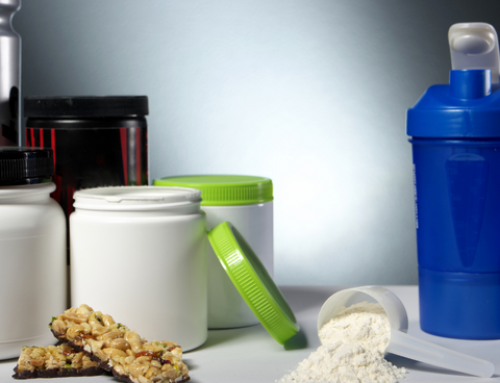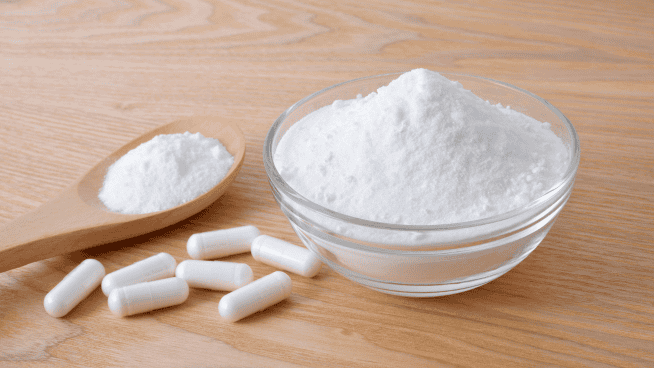How to Select a Healthy Protein Bar
As a registered dietitian, I’m an advocate for real, whole foods. (See Iron Chef Michael Symon: Eat Natural Foods for Improved Performance.) However, I do encourage my clients to carry around healthy protein bars. They are a convenient option when you need a quick meal or snack on the go. Protein bars are also an excellent backup on days when a real breakfast just isn’t possible. I try to keep some in my kitchen at home, in my car, and at work so I always have something healthy on hand before it gets too late. Being prepared is one of the keys to sticking with a healthy eating plan. (See How to form healthy eating habits.)
The trouble with energy bars and protein bars is that a bunch of culprits are on the market, all advertised as healthy but really just full of sugar and sodium. Find a healthy protein bar by observing the following guidelines.
Fiber
Healthy protein bars provide a good serving of fiber to help with blood sugar stabilization and satiety. Your choice should have at least three grams of fiber per serving. This is a good sign that the bar has complex carbohydrates.
Sugar
On the other hand, you don’t want the carbohydrates coming from excess sugar. A good rule of thumb is less than 10 grams of sugar per serving.
Sodium
Some protein bars are high in sugar (since they are a packaged, convenience item), but you also need to pay attention to sodium when making your selection. A low sodium food item has less than 300 mg per serving.
Fat
As I discussed in a previous article, athletes should not be concerned with the amount of fat, but rather the type of fat. Look for a bar with heart-healthy fats, less than three grams of saturated fat and zero grams of trans fats.
Protein
Be suspicious when picking up any product claiming to be a “protein bar.” Just because it’s labeled as such doesn’t necessarily mean it has the amount of protein you’re looking for. For a snack-sized bar, try to find one with at least six to eight grams of protein; and for a meal-sized bar, look for at least 10 to 12 grams of protein.
Best Healthy Protein Bars
Some of my favorite bars are:
Lara Bars (Peanut Butter Cookie)
- 220 calories
- 12g of fat
- 70mg of sodium
- 23g of carbs
- 4g of fiber
- 7g of protein
Kind Bars (Almond Walnut Macadamia with Peanuts + Protein)
- 200 calories
- 14g of fat
- 13g of carbs
- 3g of fiber
- 10g of protein
Think Thin Bars (Brownie Crunch)
- 230 calories
- 8g of fat
- 170mg of sodium
- 24g of carbs
- 2g of fiber
- 20g of protein
NRG Bars (Lemony Lemon)
- 170 calories
- 2g of fat
- 85mg of sodium
- 34g of carbs
- 4g of fiber
- 4g of protein
RECOMMENDED FOR YOU
MOST POPULAR
How to Select a Healthy Protein Bar
As a registered dietitian, I’m an advocate for real, whole foods. (See Iron Chef Michael Symon: Eat Natural Foods for Improved Performance.) However, I do encourage my clients to carry around healthy protein bars. They are a convenient option when you need a quick meal or snack on the go. Protein bars are also an excellent backup on days when a real breakfast just isn’t possible. I try to keep some in my kitchen at home, in my car, and at work so I always have something healthy on hand before it gets too late. Being prepared is one of the keys to sticking with a healthy eating plan. (See How to form healthy eating habits.)
The trouble with energy bars and protein bars is that a bunch of culprits are on the market, all advertised as healthy but really just full of sugar and sodium. Find a healthy protein bar by observing the following guidelines.
Fiber
Healthy protein bars provide a good serving of fiber to help with blood sugar stabilization and satiety. Your choice should have at least three grams of fiber per serving. This is a good sign that the bar has complex carbohydrates.
Sugar
On the other hand, you don’t want the carbohydrates coming from excess sugar. A good rule of thumb is less than 10 grams of sugar per serving.
Sodium
Some protein bars are high in sugar (since they are a packaged, convenience item), but you also need to pay attention to sodium when making your selection. A low sodium food item has less than 300 mg per serving.
Fat
As I discussed in a previous article, athletes should not be concerned with the amount of fat, but rather the type of fat. Look for a bar with heart-healthy fats, less than three grams of saturated fat and zero grams of trans fats.
Protein
Be suspicious when picking up any product claiming to be a “protein bar.” Just because it’s labeled as such doesn’t necessarily mean it has the amount of protein you’re looking for. For a snack-sized bar, try to find one with at least six to eight grams of protein; and for a meal-sized bar, look for at least 10 to 12 grams of protein.
Best Healthy Protein Bars
Some of my favorite bars are:
Lara Bars (Peanut Butter Cookie)
- 220 calories
- 12g of fat
- 70mg of sodium
- 23g of carbs
- 4g of fiber
- 7g of protein
Kind Bars (Almond Walnut Macadamia with Peanuts + Protein)
- 200 calories
- 14g of fat
- 13g of carbs
- 3g of fiber
- 10g of protein
Think Thin Bars (Brownie Crunch)
- 230 calories
- 8g of fat
- 170mg of sodium
- 24g of carbs
- 2g of fiber
- 20g of protein
NRG Bars (Lemony Lemon)
- 170 calories
- 2g of fat
- 85mg of sodium
- 34g of carbs
- 4g of fiber
- 4g of protein











